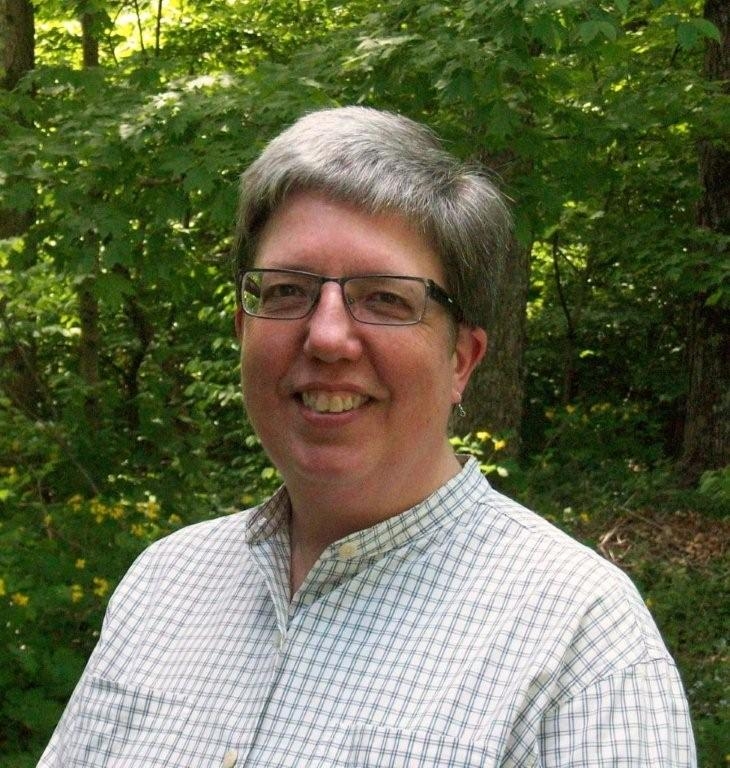Questions on Eternity - Lynn Domina
Brad Fruhauff
 5.2 poet Lynn Domina discovers her human perspective and is okay with it.
5.2 poet Lynn Domina discovers her human perspective and is okay with it.
For about twenty years, I’d found myself puzzled by the idea of eternity. It wasn’t so much the idea of no beginning and no end; I could almost imagine (if not understand) that. It was that with no beginning and no end, there could be no middle either—and that led to all kinds of loss. With no beginning, middle, or end, we have no sequence, no narrative, no possibility of story.
Then I read something that suggested that in eternity, everything happens all at once. I mulled this over. How could this be? How could I, for instance, stand at the bus stop on the first day of kindergarten, adopt my own child, and bake tonight’s pumpkin bread all at the same time?
Years passed. (I live in history, not eternity, and so I can say, “Years passed.”)
One day I realized that my problem was perspective. I cannot understand eternity because of my stance in time. In order to understand eternity, I would need to position myself outside of time. Since I could not actually place myself outside of time, I began to think figuratively, and I realized that if I had a bird’s eye view of time rather than of space, I would see everything happening simultaneously. Eureka! I had solved this intellectual puzzle at least well enough for myself, at least well enough that I could begin to think of other things.
I am a poet, though, not a philosopher, as much as I enjoy sitting around thinking (some would say brooding). I prefer to read and write poetry, with its images, its specificity, its concrete language, rather than philosophy with all of its abstractions. How could I ever write a poem that spoke of how I’d come to understand such an abstraction as eternity?
I sat at my desk and tried to imagine what I would see if I could have an aerial view of time. Because I live in the Catskill mountains, what I see whenever I look out a window are sloping hills, and the pines and oaks and maple trees that cover them. I see peaks tangled with bare branches in winter, tinged with green in spring, bursting into yellow and orange and red during October. Images of mountains and images of snow have drifted into my poems during the years I’ve lived here. So when I tried to imagine what I would see if I could see everything happening at once, I saw the buds on trees, and I saw the leaves surrendering to decay.
But then I came to this great truth: I don’t want to live in eternity; I enjoy living in time. I cling to story, to memory. I want to grasp the excitement of time’s rush, the contemplative solace of time’s creep. And so I conclude the poem with this blessing: not that we may each live in eternity, but that we may each live attentively, in time.
Lynn Domina's poems "Flickering Green, Flickering Bronze" and "Omniscience in Babel" appear in issue 5.2. Read her full bio here.